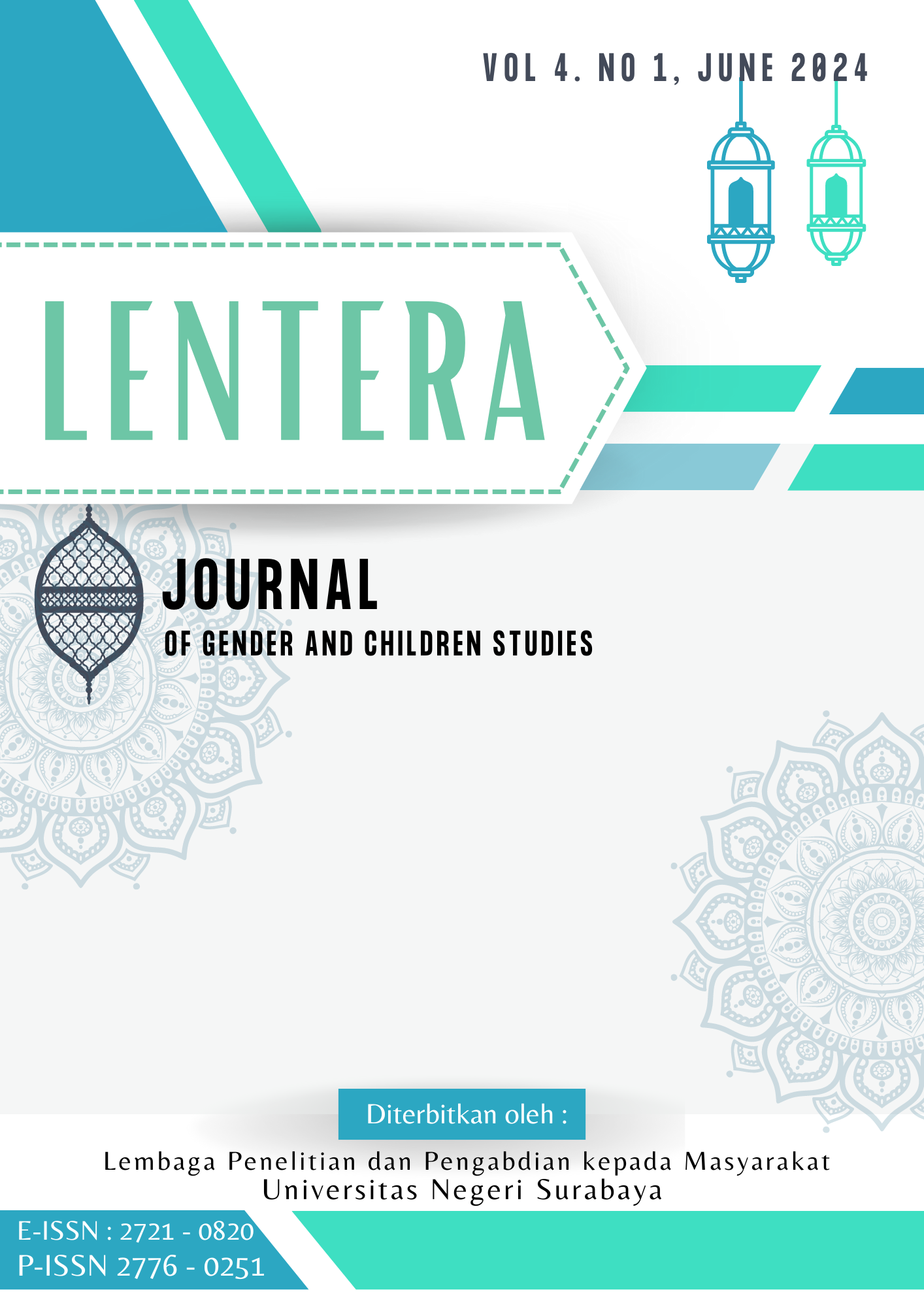ANALYSIS OF VEGETABLE PREFERENCE LEVELS AMONG PRESCHOOL CHILDREN (4-6 YEARS OLD) IN RURAL AND URBAN AREAS
DOI:
https://doi.org/10.26740/lentera.v4i1.9272Abstract
The purpose of this study was to 1) determine the level of vegetable preferences preschool children’s, 2) identify differences in vegetables preferences in rural and urban preschoolers, 3) and knowing factors related to vegetable preferences in preschool children’s. This type of research is a descriptive study with 34 subjects of preschool children in rural and urban city. Data collection using observation, test, questionnaires and semi-quantitative food frequency questionnaire. The results showed that the level of vegetable preference in children in rural areas was higher than in urban areas. Mothers in rural areas have a higher score than mothers in urban areas on the variable availability of vegetables at home. Urban mother’s nutritional knowledge is better than rural mothers. Family income in urban areas has a higher score than income in rural areas. Factors that are significantly related to vegetable preferences in children are the child's response to the aroma and shape of vegetables, knowledge of maternal nutrition and family income. There is a significant negative relationship to family income variables and vegetable preferences that are preferred by children. While the mother's nutritional knowledge variable has a significant positive relationship with vegetable preferences that are preferred by children. However, the variable availability of vegetables at home there is no significant relationship with the preferences of vegetables that are preferred by children.
Keywords: Food Preference; Pre-school Children’s; Vegetables.
Downloads
Published
How to Cite
Issue
Section
 Abstract views: 357
,
Abstract views: 357
, PDF Downloads: 1089
PDF Downloads: 1089



